Nan Graham, Editor-in-Chief
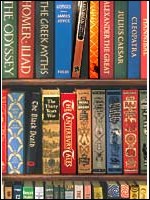
A native Midwesterner, Nan Graham is the Editor-in-Chief of Scribner, a Simon and Schuster Company.
Nan is responsible for the editing and publishing of such extraordinary books as Angela's Ashes by Pulitzer Prize winning author Frank McCourt, Living History by Hillary Clinton, The Noonday Demon by Andrew Solomon and Brick Lane by Monica Ali.
Nan also works with such critically acclaimed authors as Toni Morrison and Salman Rushdie.
But among her biggest and most important accomplishments are her children, ten year old Henry and Delia who is seven.
Nan, Henry, Delia and "Dad" Mark make New York City their home.
I have had the pleasure of knowing Nan for the last few years and she is dynamic as well as warm and friendly. What amazes me most about her is how she so gracefully manages such a demanding work schedule with parenting and family life.
Her work speaks for itself but watching Nan with her kids and with Mark is always inspiring to me.
DR: Tell me anything that you want to about your life and your work.
NG: Well at this point I feel as if I basically only have my family and my work. The rest of life has completely fallen by the wayside, which I'm sure happens to most people who have kids and a big job.
Work-wise is a lot of caretaking also, because authors have an infinite appetite for attention and you can always see something else to help fix a book or get the book to the reader or get the book to be the favorite among sellers or get the book reviewed or get the book in a magazine or get the author on NPR. You can never ever, ever, ever stop. So, there is a lot of that and then there's a lot of homework, which is when the reading and the editing happens basically. A lot of meetings and a lot of being on the phones and –
NOTHING IS BETTER THAN HENRY AND DELIA!
of course,
who I had very late.
I was 40 when I had Henry and 42 when I had Del and that was just incredibly lucky. And they're thriving at this particular moment.
But I used to do many more things, Dana. I used to travel a lot more and I was the chair of the International Freedom to Publish Committee – I'm still on it, I just don't chair it. That's when publishers in Turkey or Iran or Viet Nam or Cuba or any other place in the world where you get put in prison or get put on trial for publishing something that the government doesn't like. So, I got to go to Turkey a couple of times and Behr an with them and I haven't done that in awhile, although I have to say I am thinking about it because a very great writer, Orhan Pamuk is being taken to trial now for basically using the word "Armenian massacre”, and a very wonderful publisher who I met last time I was there is also in trouble for publishing something that the state didn't like.
So, I used to do more of that and some day I will again!
DR: Someday when...
NG: (Laughs) When Henry and Delia are in college.
DR: (Laughing) Sounds like...
NG: ...and the world has been fixed.
DR: I got it.
What would you say Nan – what is it that you are most proud of, about your life right now?
NG: What is it that I am most proud of?
Well that's a tough one because one begins with Delia and Henry and what they have managed to accomplish and how much they love doing what they do and...Henry is such a good friend and so serious and so responsible and so concerned about the world and things like that.
In terms of the work life –
I am pretty proud of Frank McCourt. He wrote a hundred and fifty nine pages of Angela's Ashes and I read them and loved them right away and worked with him and that became a fantastic success and now he is on his third book called Teacher Man which is really about how you need to support teachers in this particular culture and that we don't... we don't exactly support them, you know. And now they get to work ten minutes extra a day...which is just laughable...
I'm pretty proud of Frank McCourt.
There are lots of writers whose books I've published that I'm very proud of -- Andrew Solomon who wrote a book on depression and -- who else? I am proud of my writers. I could rattle them off...I am proud of this new writer named Jeanette Walls and I am really proud of this writer named Amy Hempel. And I love Monica Ali whose fourth book Brick Lane was one of my favorites.
Things like that!
I am proud of Mark for writing Big If.
DR: Which Auguste and I have on our list. We have got to read it.
NG: You do have to read it.
DR: We were reminded of that last Sunday at the party. We're fans.
NG: (Laughs) Yes, there were some fans there.
DR: Nan, clearly you love what you do and clearly you love the people that you get to do it with. Do you have a favorite thing about work; a favorite aspect?
Just a few of the books edited by Nan Graham:
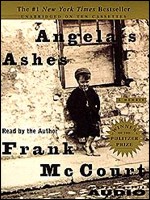
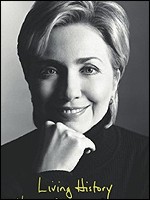
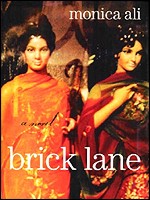
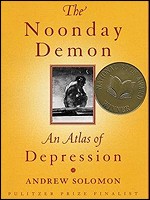
NG: Well, you know, part of it is still where you're in between the writer, "alone in the room" and the reader, "alone in the room" and everything you do is really to unite those two people because it's such a private thing.
Writing is such a private thing and reading is such a private thing and in between is huge edifices – publishing companies and jacket designers and marketers and publicists and sales reps and book sellers and reviewers and all of that edifice, but really it's just about getting the writer alone in the room and the reader alone in the room. One of my favorite things still is –
To be alone with the manuscript to figure out how to put it together or how to make it better.
That's still an incredibly intimate... process where you... begin to understand what the writers mind is like, what the story teller is doing.
And then there are some things that are just incredibly satisfying. When something goes well and you get a Pulitzer Prize or you get a National Book Review or you get a number one bestseller or any kind of bestseller at all or when you think that you can actually do a little bit to change the way people think or look, it's very satisfying.
It is more of a corporation than it ever it ever was before. Publishing has become more of a corporate pursuit. That's a different kind of challenge and not always a completely satisfying one and in some ways it seems so completely {contrary} to the creative process but, you've got to do what you've got to do. When it results in getting more readers for something good, it's fine. There's an awful lot that gets published that is not particularly about the betterment of humanity or anything else.
I come from a very public service family and I do sort of think "Oh my God. These guys were Peace Corps teachers or Equal Employment Opportunity Commission – What am I doing for the World!?”
But we are doing what we can.
DR: You talk about the challenges of the "corporatizing" -- if I can make up a word -- of the publishing world. What has challenged you most lately? Whether it's work or another area of your life and how do you overcome?
NG: Well I feel parenting is just a complete challenge EVERYDAY! And part of it is that you come home at 7:00 at night and you've had your day, whatever your day is, obviously full of much satisfaction and sometimes much aggravation, and then there are these two incredibly wonderful, incredibly needy children.
And you know what -- I realized that this is when I want my maternity leave. I want my maternity leave when they are eight and ten and they actually want your brain. They want to think with you. They want to listen. They want to talk. They want you to listen. It's not like the olden days where if you were present, it was enough. So I find the biggest challenge is just to fit everything in and to not be exhausted and sort of depleted when I am with the most important people in the world, who are Henry and Delia and Mark. So I find that the biggest challenge. Keeping these little minds, these little bodies all engaged and inspired and confident and a little bit optimistic. I think it's a tough time in the world...and a little frightening in some ways and here they are! It's their world...it's their world ahead. I find it sometimes a challenge just to think about what kind of world they're going to be in, in fifty years and how to prepare them for it...my biggest challenge.
DR: You know for me Nan, knowing you, who you are, I'm clear for myself about what an amazing contribution you and someone who does what you do, makes to the world, but what would you say is your biggest contribution to the world.
NG: You know, I am not sure how to answer that, Dana. In terms of what I publish I think there are obviously exceptions to it. The Andrew Solomon book is an incredible book about depression and I think an enormous amount of people found it profoundly helpful and it changed their lives. He gets letters all the time about what an informative experience reading the book was and how they were able to confront what they... their demons. It's called The Noonday Demon.
And the fiction... not all of the fiction that I publish, but much of the fiction that I publish, is about clashing cultures and immigrant literature.
Monica Ali's book was about a Bangladeshi, an eighteen year old Bangladeshi girl from a village. She is in an arranged marriage with a 40 year old Bangladeshi. She's in London and when she comes to London she speaks not a word of English and she doesn't know a single soul and her husband is 22 years older than she is and she has to come to terms. She has to find a life. She has to make a life. She has to forge into this whole...explore this whole new universe. It's extraordinarily moving and funny...some of the politics of the new generation of South East Asian immigrants and what's happening to some of the children of people who were willing to be civil servants and really sort of embracing the system and now are embracing Islam. Many of the people who probably one degree of separation from Bolton -- she looks at that world. And there is Solomon Rushdie whom I also published and Hanif Kureishi, whom I also published.
I think it's important for us in particular, to have sort of an intimate view of other cultures and particularly of what we look like from their point of view because they are among us and I think we rarely do sort of imagine what it is to try to penetrate this world and to assimilate, even though some of our grandparents and great grandparents and parents did so themselves.
I think when publishing is good, when you do something...
I get a lot of memoir and I think that is often inspiring because it makes people realize that other people have difficult lives and they overcome.
I remember on Angela's Ashes I have a cousin who is the head of Child Welfare in the state of Vermont and she said it changed the way... the decisions she made, the kids that she was charged with. Because she would have taken those kids away from Frank McCourt's father. She would've broken up that family... not quite understanding what it was that the father was actually providing... The memoir can be transformative. So in so far as, there's a contribution, I think that's what it is.
DR: Well I'm going to change gears a bit abruptly here and just ask you what is the nicest thing you think that people say about you when you're not around?
NG: (Laughs) Oh! I have been so impatient lately that I really can't imagine what they might say. I really can't. I can't. I used to be energetic and generous and cheerful and optimistic and so if there is any chance I still am, I 'spose that's what they might say. But I don't feel any of those things lately, Dana as we discussed earlier in the week.
DR: Yeah. Well I can relate.
Tell me Nan, a hundred years from now, what do you want to be remembered for.
NG: Oh, my books and my children.
DR: Your books and your children?
NG: My books and my children.
DR: Anything else?
NG: My books and my children.
Thanks Nan!
